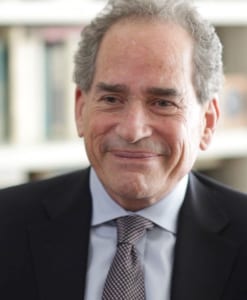Six Tips for Choosing the Right Forensic Psychiatric Expert
When it comes to choosing a forensic psychiatric expert, it’s important to select someone who has the right qualifications and experience. This type of expert is typically called upon to provide psychological or psychiatric evaluations, testimony, and reports in legal proceedings, including criminal and civil cases.
Here are some key factors to consider when selecting a forensic psychiatric expert:
- Education and training: Look for a forensic psychiatric expert who has a doctoral degree in psychology (Ph.D. or Psy.D.) or medical degree (M.D. or D.O.) followed by a four-year residency in psychiatry at a reputable training institution. They should also have specialized training in forensic psychiatry, which focuses on the intersection of law and mental health. For psychiatrists, that consists of a 1-year full-time accredited Forensic Psychiatric Fellowship, following their 4-year psychiatric residency. Successful completion of a Forensic Psychiatric Fellowship is a prerequisite to taking the American Board of Psychiatry and Neurology certified Forensic Psychiatry Board Exam.
- Board certification: Choose an expert who is board certified by the ABPN, not only in psychiatry but also in forensic psychiatry. This certification indicates that the expert has met high standards of education, training, and experience in the field.
- Communication ability: No matter how impressive an expert’s academic credentials are, nor how thick their CV is, the ultimate value that a skilled forensic psychiatric or psychological expert offers to a litigating attorney is his or her ability to communicate clearly and credibly both in written reports and orally at deposition or trial. The expert’s ability to elicit trust from those listening to their testimony is the product of several nuanced factors. These include speaking in an ordinary language without pomposity or psychiatric jargon, the ability to use concrete examples that one can visualize to illustrate often abstract psychological concepts, straightforwardness, and the absence of pretense. The ability of an expert to also acknowledge what they do not know, or even to acknowledge questions that they wish they had asked the examinee at the time of their interview but did not think to, can go a long way towards establishing the expert’s credibility with the jury and the Court.
- Experience: The best forensic psychiatric experts have extensive experience working in the legal system and providing expert testimony. Look for someone who has worked on a variety of cases, including both criminal and civil proceedings.
- Integrity: Choose a forensic psychiatric expert who maintains a high standard of professional and personal integrity. Every expert and every person has biases. The challenge when evaluating an expert is to assess whether the expert is aware of issues and contexts where his or her biases may influence their objectivity. One of the best questions for assessing expert integrity and bias is not “How many times have you previously been retained by plaintiff or defense counsel (in civil matters), or by the prosecution or defense counsel (in criminal matters)?” Rather, ask the expert, “How many times have you offered an opinion that you know does not support the inquiring or retaining attorney’s current theory of the case?”
- Availability: Make sure the forensic psychiatric expert you choose is available to assist you during the likely timeline of your case. Some experts, no matter how well known, may have a too busy schedule, with too many competing obligations, have taken on more forensic cases than they can handle, or may even be reducing or phasing out their forensic practice. Since a substantial case may require an expert’s active participation for two or more years, it is always important to explicitly confirm the expert’s availability during the initial discovery period when medical and legal records, sometimes voluminous, will need to be reviewed together with evaluations performed and reports written. Similarly, whenever possible, confirm the expert’s availability to testify around the time of the scheduled or likely trial date. Of course, these dates may change for a variety of reasons. Nevertheless, informing your expert early about the likely trial date is important to avoid unanticipated nightmare scenarios, like the expert being in Europe on a long-anticipated vacation at the same time as your case finally comes to trial.
By considering these factors, you can choose the right forensic psychiatric expert for your legal case. This expert can provide valuable insight and testimony, helping you to build a strong case and achieve the best possible outcome.
At fpamed, we have a team of 23 experts (16 psychiatrists board certified in forensic psychiatry and other sub-specialties, 6 forensic neuropsychologists, and an autism expert) who offer the kinds of expertise discussed above.
If you are an attorney, we’d love to schedule a free consultation for you with either our medical or assistant medical director. Complete our contact form, email us at email hidden; JavaScript is required or call us at 415-388-8040.

